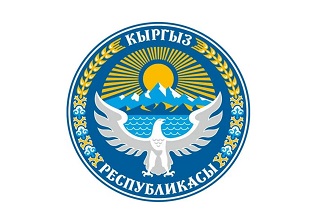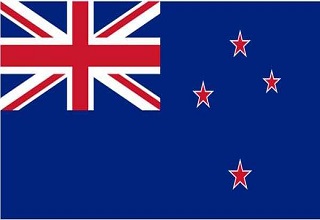Regarding the Inspection and Quarantine Requirements for Dried Chilies from Uganda to China
I. Inspection and quarantine basis
(I) "Biosafety Law of the People's Republic of China";
(II) "Law of the People's Republic of China on Entry and Exit Animal and Plant Quarantine" and its implementing regulations;
(III) "Food Safety Law of the People's Republic of China" and its implementing regulations;
(IV) "Protocol on Plant Quarantine Requirements for the Export of Dried Chili Peppers from Uganda to China between the General Administration of Customs of the People's Republic of China and the Ministry of Agriculture, Livestock and Fisheries of the Republic of Uganda".
II. Names of commodities allowed to enter the country
The dried chili peppers in this announcement refer to products made from edible chili peppers (Capsicum spp.) grown in Uganda, which are processed by natural drying or other drying processes.
III. Enterprise registration
The planting bases and processing and packaging factories for dried chili peppers exported to China should be reviewed by the Ministry of Agriculture, Livestock and Fisheries of Uganda and registered with the approval of the Chinese Customs. The registration information should include the name, address, product and registration number, so as to accurately trace the source when the dried chili peppers exported to China do not meet the relevant provisions of this announcement. Before starting trade, the Ministry of Agriculture, Livestock and Fisheries of Uganda shall provide the registration list to the Chinese Customs. It will be published on the website after approval.
IV. List of quarantine pests of concern to the Chinese Customs
1. Trogoderma granarium
2. Callosobruchus maculatus
3. Acanthoscelides obtectus
4. Tomato spotted wilt virus (TSWV)
5. Potato spindle tuber viroid (PSTVd)
V. Pre-export management
(I) Planting base management.
1. The planting base for dried peppers exported to China (hereinafter referred to as the planting base) shall establish a sound quality management system and traceability management system under the supervision of the Ministry of Agriculture, Livestock and Fisheries of Uganda, implement good agricultural practices (GAP), maintain planting sanitation conditions, such as no pollution sources affecting the production of dried peppers, timely cleaning of plant diseased residues, etc., and implement integrated pest management (IPM), including pest monitoring and investigation, physical, chemical or biological control, and other prevention and control measures such as agricultural operations.
2. The planting bases shall carry out pest monitoring and integrated management for quarantine pests of concern to China Customs under the supervision of the Ministry of Agriculture, Livestock and Fisheries of Uganda. Pest monitoring and control in planting bases shall be carried out under the guidance of professional technicians. The technicians shall receive training from the Ministry of Agriculture, Livestock and Fisheries of Uganda or its authorized institutions. The planting bases shall keep records of pest monitoring and control for at least 2 years and provide them to China Customs upon request. Pest monitoring and control records shall at least include detailed information such as the monitoring time, the names of the pests found, the control measures taken, and the date of use, active ingredients and concentration of the chemicals used.
3. For Tomato spotted wilt virus (TSWV) and Potato spindle tuber viroid (PSTVd), the planting bases shall conduct monthly monitoring from the growth to the harvest to ensure that these two pests do not occur. If these two pests are found, the peppers of the planting base in this growing season shall not be used as raw materials for the production of dried peppers exported to China.
(II) Management of processing and packaging enterprises.
1. Registered processing and packaging factories for dried chili peppers exported to China should establish a traceability system to ensure that the dried chili peppers exported to China can be traced back to the registered planting base, and record information such as the processing and packaging date, the name of the source planting base or its registration number, quantity, export date, export quantity, import country, means of transport or container number.
2. The processing, packaging, storage and shipment of dried chili peppers exported to China should be carried out under the quarantine supervision of the Ministry of Agriculture, Livestock and Fisheries of Uganda or its authorized personnel.
3. The processing and packaging factories for dried chili peppers exported to China should be clean and hygienic, with hardened ground, and have raw material fields and finished product warehouses.
4. The storage, processing, packaging, storage and other functional areas of dried chili peppers exported to China should be relatively independent and reasonably laid out, and isolation measures should be taken from the living area and maintained at an appropriate distance.
5. During the processing of dried chili peppers exported to China, they should undergo manual picking, screening, cleaning and other processes to ensure that they are free of insects, mites, snails, diseased fruits, rotten fruits, grass seeds, stems and leaves and other plant residues, soil and other foreign impurities.
(III) Packaging requirements.
1. The packaging materials should be clean, hygienic and unused, and meet the relevant plant quarantine requirements of China. If wooden packaging is used, it must comply with the requirements of International Standard for Phytosanitary Measures No. 15 (ISPM15).
2. Each packaging box should be marked with traceability information such as product name, country, origin, planting base and processing and packaging factory name or its registration number in Chinese or English. Each packaging box and pallet must be marked with "输往中华人民共和国" or "Exported to the People's Republic of China" in Chinese or English.
3. The means of transport or containers loaded with dried peppers exported to China must be checked for good sanitary conditions during shipment. The means of transport or containers should be sealed and the seals should be intact when arriving at the Chinese entry port.
(IV) Inspection and quarantine before export.
1. Before export, the Ministry of Agriculture, Livestock and Fisheries of Uganda shall conduct inspection and quarantine on dried peppers exported to China. Dried peppers that have passed the inspection and quarantine of the Ministry of Agriculture, Livestock and Fisheries of Uganda and confirmed to meet the requirements of this announcement are allowed to be exported to China.
2. Within the first two years of trade, the Ministry of Agriculture, Livestock and Fisheries of Uganda shall sample and inspect each batch of dried chilies exported to China at a rate of 2%. If no plant quarantine problems occur within two years, the sampling rate will be reduced to 1%.
3. If quarantine pests, plant residues or soil of concern to the Chinese Customs are found, the entire batch of goods shall not be exported to China. The Ministry of Agriculture, Livestock and Fisheries of Uganda shall find out the reasons and take improvement measures. At the same time, keep the records of seizures and provide them to the Chinese Customs upon request.
(V) Requirements for plant quarantine certificates.
1. For dried chilies that have passed quarantine, the Ministry of Agriculture, Livestock and Fisheries of Uganda shall issue a plant quarantine certificate, indicating the name or registration number of the planting base and processing and packaging factory, and fill in the following additional statement: "This consignment complies with the requirements specified in the Protocol of Phytosanitary Requirements for Export of Dried Chilies from Uganda to China, and is free from quarantine pests of concern to China."
2. Before the start of trade, the Ministry of Agriculture, Livestock and Fisheries of Uganda shall provide a sample of the plant quarantine certificate to the Chinese Customs for confirmation and filing.
VI. Entry Inspection and Quarantine and Disqualified Treatment
When the dried peppers imported to China arrive at the Chinese entry port, the Chinese Customs will implement inspection and quarantine in accordance with the following requirements.
(I) Verification of relevant certificates and labels.
1. Verify whether the plant quarantine certificate complies with the provisions of Article 5, Item (V) of this Announcement.
2. Verify whether the labels on the packaging boxes and pallets comply with the provisions of Article 5, Item (III) of this Announcement.
(II) Entry Inspection and Quarantine.
In accordance with relevant laws, administrative regulations, rules and other provisions, inspection and quarantine shall be implemented on imported dried peppers. If they pass the inspection and quarantine, they shall be allowed to enter the country.
(III) Disqualified Treatment.
1. If it is found that they come from unregistered planting bases or processing and packaging factories, the batch of goods shall not be allowed to enter the country.
2. If it is found that there is no valid plant quarantine certificate attached, the batch of goods shall be returned or destroyed.
3. If quarantine pests or other quarantine pests of concern to the Chinese Customs are found, or plant residues, soil, etc. are found, the batch of goods will be returned, destroyed or quarantined.
4. If it is found that it does not meet the national food safety standards of China, the batch of goods will be returned or destroyed.
5. If the above non-compliance is found, the Chinese Customs will immediately notify the Ministry of Agriculture, Livestock and Fisheries of Uganda and suspend the import of dried peppers from relevant planting bases and processing and packaging plants as appropriate. The Ministry of Agriculture, Livestock and Fisheries of Uganda should find out the reasons for the non-compliance and take improvement measures to prevent similar situations from happening again. The Chinese Customs will decide whether to cancel the suspension measures based on the rectification results of the Ministry of Agriculture, Livestock and Fisheries of Uganda.
GACC
Sep. 19, 2024




